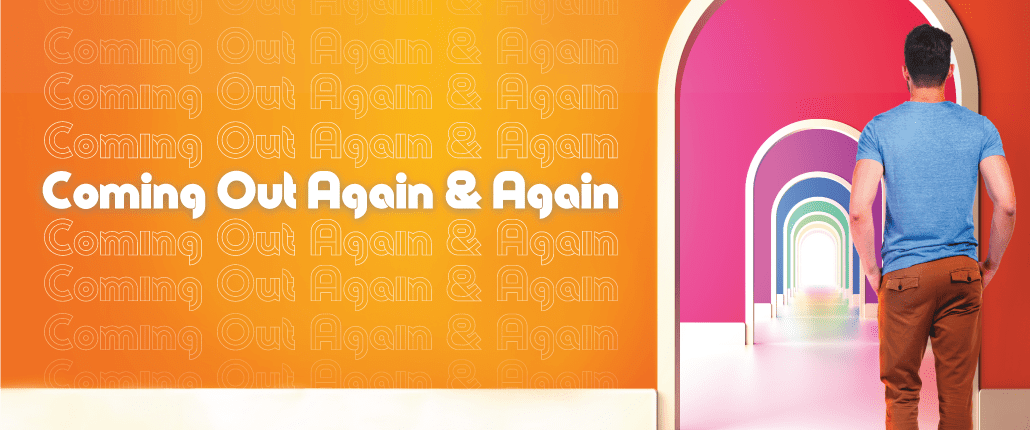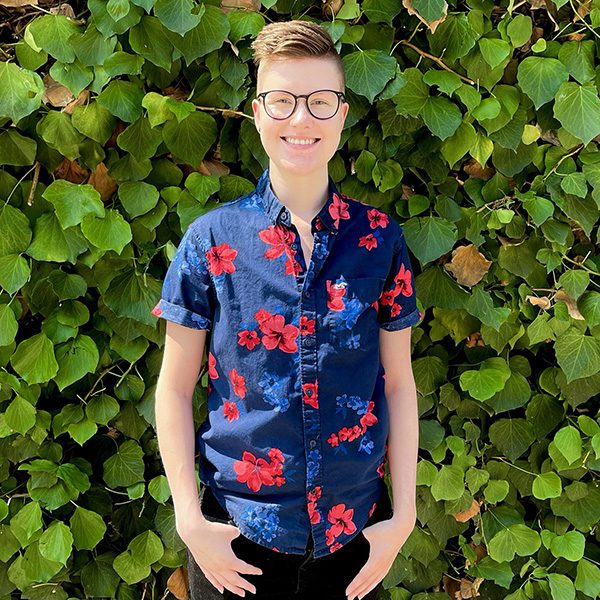
Coming Out Again & Again
By Leo Kirkham
As Dr. Sarah Bruce wrote in her blog post for last year’s Coming Out Day, coming out is a journey, not a destination. There is rarely one single moment in a person’s life where they come out, but rather, a series of choices every single day about whether to come out to the random stranger cutting your hair, or to your neighbor, or to your doctor. This puts LGBTQIA people in the position to choose safety or authenticity: Do I choose the comfort of this person knowing my identity, or the comfort of them not knowing?
Coming out can bring feelings of joy, relief, and even euphoria – but it can also bring feelings of fear or anxiety. For some LGBTQIA people, in their journey of exploring their gender and sexual orientation, find that they need to come out again as something new.
Personally, I came out as bisexual before I came out as a lesbian. Then I came out as nonbinary, changed my name, and starting using they/them pronouns. Each coming out marked a new stage of my journey to finding myself, and a step closer to my truest, most authentic self.
But coming out again, and again, was scary. Will the family members and friends who loved and accepted me as a lesbian, still love and accept me as nonbinary? Will they use my new name and pronouns? If I change my name or pronouns in the future, will they understand?
Every new coming out brings with it a new wave of doubts and what-ifs.
Sometimes, family members or friends are accepting of a person’s sexual orientation, but not their gender identity. Or they are okay with their child being gay, but they don’t believe bisexuality is real. Or they were fine with someone changing their name and pronouns once, but think, does that person have to change them again?
There is also the fear of reinforcing negative stereotypes about the LGBTQIA community. For example, I feared coming out as a lesbian and reinforcing the stereotype that bisexuality isn’t real, or that all bisexuals come out as gay in the end. This stereotype isn’t true, but often LGBTQIA folks, like other minorities, face the burden of having to represent their entire community. Stigma and stereotypes arise when individuals are taken to represent all LGBTQIA people.
Instead, we should give individuals the freedom to explore their identities without judgment. Every new coming out should be greeted with joy and celebration. Tell your child or loved one, “Thank you for trusting me. Thank you for telling me. Thank you for being your true, authentic self with me.” By creating a safe environment for your loved ones, you encourage them to be confident, be brave, and be themselves.
